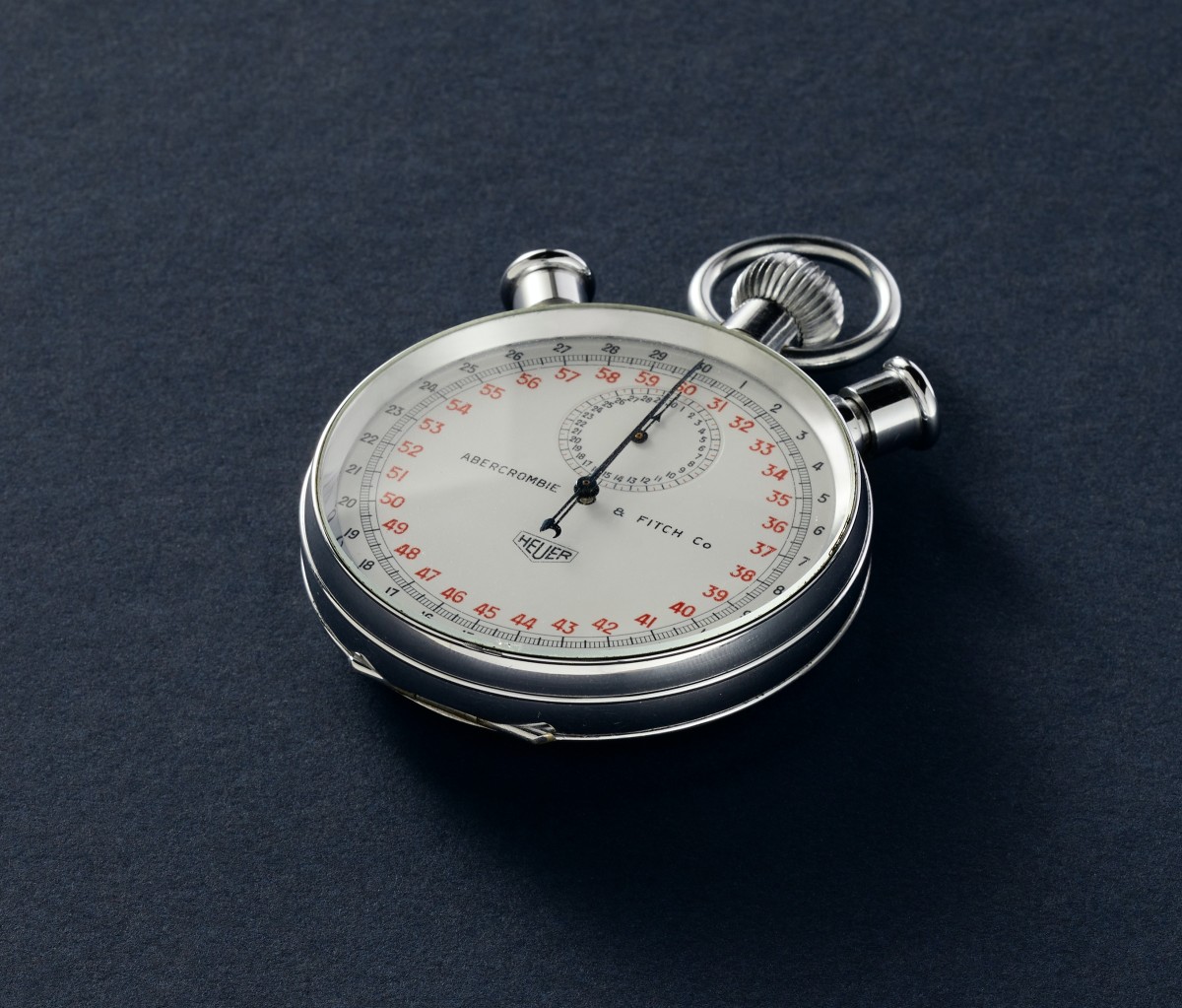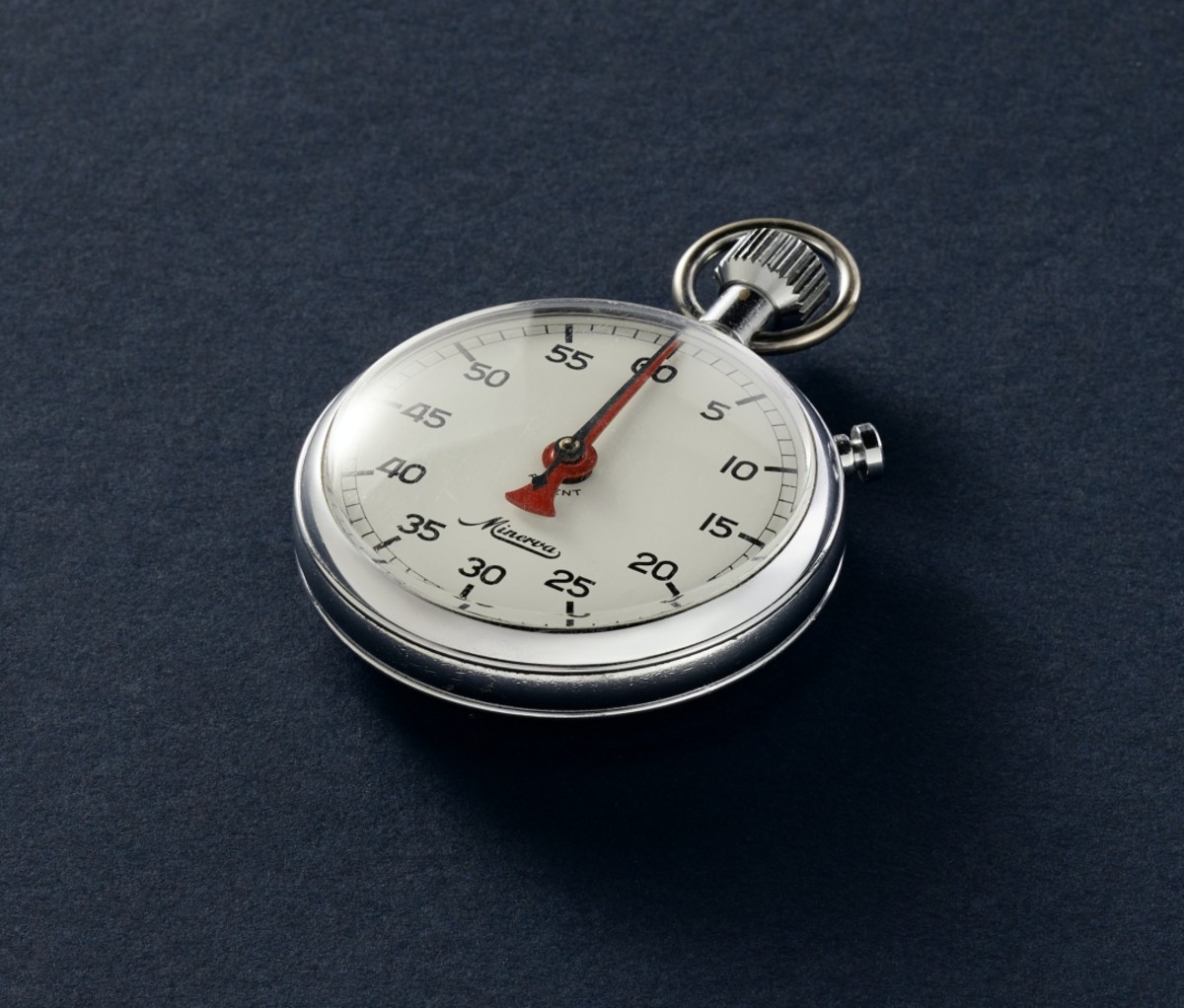Although they’ve recently been eclipsed by multi-functional sport watches and training apps, stopwatches were once an essential part of measuring athletic performance. And we’re not just talking about some hunk of plastic with a digital display—the stopwatches of yesteryear were precision-crafted machines that rivaled their wristwatch counterparts in style (which makes sense, since many great watchmakers also produced stopwatches). In the new Tracksmith x Wind Vintage collection, which launched last week, stopwatches finally get their due: The collection of 11 vintage mechanical stopwatches showcases the craftsmanship of these timepieces and highlights their important role in running.
The collection came about through a partnership between Tracksmith, the running brand known for its collegiate- and vintage-inspired performance apparel, and Wind Vintage, a company founded by Eric Wind that specializes in selling and maintaining high-quality antique watches. To create the collection, Wind worked with Tracksmith to select 11 unique vintage stopwatches that highlight the important role timekeeping has played in track and field over the years.

The collection includes items from well-known watch brands like Breitling, Omega, and Heuer, as well as more obscure makers like Gallet and Favre-Leuba, all produced from the 1950s to the 1980s. Together, they’re an excellent representation of the utilitarian style and craftsmanship of mechanical stopwatches—and each of these picks has a story to tell.
Take the Heuer by Abercrombie & Fitch Split-seconds, for example. This stopwatch was produced in Switzerland in the 1960s for Abercrombie & Fitch (at the time, the brand was an outdoor gear retailer), and it included a “split-seconds” complication that allowed the user to track two runners simultaneously. To that end, it’s made with two second hands—one with a half-moon counterweight, the other with a teardrop counterweight—for tracking two different times. The bold black and red second markers make it easy to read at a glance, and with its large crown, lanyard ring, and dual buttons, it’s straightforward and functional, but strikingly elegant, too.

Highlights from the rest of the collection include a stopwatch made for the New York City Board of Education (likely put to work in gym class running sessions), a military-issue stopwatch with “U.S. Government” printed on the dial, and a rare Heuer stopwatch that can track hours though a unique “jumping hour counter” window embedded in the dial. But for pure style points, we love the 1960s Minerva and its clean, open dial layout, large red minute hand, and bold numerals. It’s an undeniable classic, but it still looks handsome and sleek, even decades after it was manufactured.
It seems there was a lot of pent-up demand for vintage stopwatches; the collection sold out almost immediately after it was released. But keep an eye out for resellers—and possibly another release from Tracksmith and Wind Vintage in the future.
[Starting at $190; tracksmith.com]
Get itfrom Men's Journal https://ift.tt/2Xdz8E3
via IFTTT



